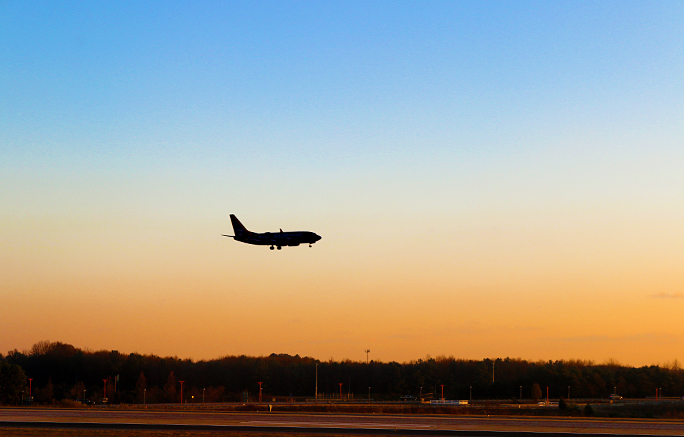As a person who travels, you have likely been affected by the industrial action of a component of a multinational company in the travel industry that is represented by a union — which leads to the reason why strikes should be illegal.
Why Strikes Should Be Illegal.
Flights have been canceled by Air Canada at the time this article was written due to a labor dispute that has led to the shutdown of most of the operations of the airline.
The main purpose of unions is to provide a strengthened alliance to work with management and executives of a company on behalf of the best interests of the employees — stronger than if individual employees tried to work with members of the executive and management teams of the company. Unions were created to protect the rights of employees.
That right there stopped me short of denouncing unions and simply saying that they no longer have any relevance in the world of today. If their representation positively helps the very constituents they serve, so be it.
Approximately 70 percent of people approved of labor unions as of Thursday, August 1, 2024, according to a poll that was conducted by Gallup, Incorporated. Only 23 percent of those surveyed disapprove of labor unions, with seven percent having no opinion. Moreover, 61 percent of the participants oppose taking away some of the collective bargaining rights of most public unions — even if it leads to reducing the budget deficit in a government. I have no idea who was surveyed for this poll, however.
The problem is that unions exacerbate labor disputes to the point of striking — although they will tell you that that is the last resort when communications and negotiations are unsuccessful between a company or an industry and the employees. Some unions also seem to prioritize looking out for themselves over the very people they represent, which is flat out wrong, in my opinion.
Many components of the travel industry are represented by numerous unions, associations, and advocacy groups — including but not limited to:
- Association of Flight Attendants–CWA, AFL–CIO
- Air Line Pilots Association, International
- Transport Workers Union of America AFL-CIO
- UNITE HERE!
- U.S. Travel Association
I have attended many trade shows as a presenter. I remember one year when I saw boxes that were shipped to the Jacob K. Javits Convention Center in New York that were for our booth. They were only a few yards away from the booth; so I went to get one of those packages in order for me to help set up the booth sooner and be able to go out and grab a bite to eat and not have to worry about setting up the booth later that evening. A worker approached me and scolded me for touching the box, as I was not allowed to do so due to union rules and regulations. We had to wait several hours before someone delivered those boxes those several yards to the booth.
I thought that was absolutely ridiculous, as what I was attempting to do was permitted in numerous other areas around the world with no problem.
Final Boarding Call
Striking is a form of protest — but as protesting is a form of freedom of speech, the two are not interchangeable. As I wrote in this article on Thursday, August 8, 2024, “…if someone is doing something wrong, harming someone else, or is otherwise exceeding the bounds of the law, that should be enough to hold that person accountable and responsible and prosecute that person — whether or not he or she is wearing a mask or some other covering for his or her face.”
Accordingly, I believe that employees have a right to protest the working conditions and compensation that is provided by their employers — but similar to people who protest on city streets or on access roads to airports, workers should not be allowed to disrupt the lives of ordinary innocent citizens who have absolutely nothing to do with the labor disputes. They can battle their employers all they want, whether peacefully or vociferously; and they can even bring their sides of the dispute to the public via mainstream media and social media — but they have no right to prevent you from going about your life.
“Needlessly inconveniencing people typically does not solve problems or issues”, I wrote in this article on Wednesday, December 27, 2023. “Rather, more problems and issues are usually caused — as well as increased animosity towards the people who attempt to advance their cause.”
That quote that you just read applied to people who block access roads to protest their causes — but I believe it equally applies to employees who strike and disrupt the lives of customers. In the case of Air Canada, what if attempting to attend an emergency situation depended on that timely flight? What about if that flight was for a critical interview for a job? Do these strikes prevent at least some commerce from being conducted and potentially impacting business in Canada? Why is this even allowed?
If a person is unhappy with his or her working conditions, that person should quit his or her job and find a position that is more suitable to what he or she wants or needs — which is what I have done all of my life. I have never been a member of any union in my lifetime. Most of the people I know are not — and never were — members of unions. We all somehow managed just fine.
Strikes are already illegal in some governments. Similarly, strikes should be illegal if they directly aversely affect both innocent people and paying customers of the company or industry for whom the employees work, in my opinion.
Photograph ©2015 by Brian Cohen.

